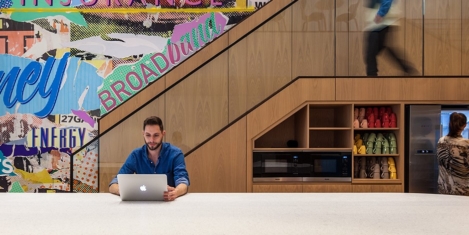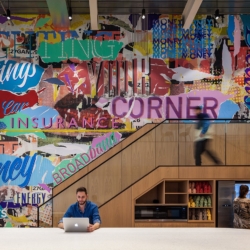To provide the best experiences, we use technologies like cookies to store and/or access device information. Consenting to these technologies will allow us to process data such as browsing behaviour or unique IDs on this site. Not consenting or withdrawing consent, may adversely affect certain features and functions.
The technical storage or access is strictly necessary for the legitimate purpose of enabling the use of a specific service explicitly requested by the subscriber or user, or for the sole purpose of carrying out the transmission of a communication over an electronic communications network.
The technical storage or access is necessary for the legitimate purpose of storing preferences that are not requested by the subscriber or user.
The technical storage or access that is used exclusively for statistical purposes.
The technical storage or access that is used exclusively for anonymous statistical purposes. Without a subpoena, voluntary compliance on the part of your Internet Service Provider, or additional records from a third party, information stored or retrieved for this purpose alone cannot usually be used to identify you.
The technical storage or access is required to create user profiles to send advertising, or to track the user on a website or across several websites for similar marketing purposes.
 Trust, social cohesion and information sharing are the most potentially vulnerable to damage when people work virtually, according to a study of around 750 academic papers conducted on behalf of the Advanced Workplace Institute (AWI), a global workplace management body. As organisations rapidly embrace home working and virtual work in response to the Covid-19 pandemic, the study warns that without active management to respond to changes in working, team dynamics are under risk with a knock on effect on both employee happiness and performance. (more…)
Trust, social cohesion and information sharing are the most potentially vulnerable to damage when people work virtually, according to a study of around 750 academic papers conducted on behalf of the Advanced Workplace Institute (AWI), a global workplace management body. As organisations rapidly embrace home working and virtual work in response to the Covid-19 pandemic, the study warns that without active management to respond to changes in working, team dynamics are under risk with a knock on effect on both employee happiness and performance. (more…)















 Over a third (36 percent) of UK businesses believe that implementing new health and safety measures in accordance with the Government’s recently published guidelines are the biggest challenge they face as lockdown eases and they attempt to return to the workplace, according to new research conducted by the UK law firm,
Over a third (36 percent) of UK businesses believe that implementing new health and safety measures in accordance with the Government’s recently published guidelines are the biggest challenge they face as lockdown eases and they attempt to return to the workplace, according to new research conducted by the UK law firm, 
 The easing of lockdown restrictions and a return to offices is raising the stress levels of over a quarter of UK tech professionals (26 percent) at a time when over 1 in 3 (36 percent) report that their mental health has deteriorated during Covid-19, according to a new
The easing of lockdown restrictions and a return to offices is raising the stress levels of over a quarter of UK tech professionals (26 percent) at a time when over 1 in 3 (36 percent) report that their mental health has deteriorated during Covid-19, according to a new 


 With lockdown measures slowly easing in the UK, 65 percent of UK workers reveal that they would feel uncomfortable going back to the workplace right now, research claims. This is despite one in five (20 percent) expecting to be asked by their bosses to return to work in June. That’s according to new ‘Return to Work’ research from
With lockdown measures slowly easing in the UK, 65 percent of UK workers reveal that they would feel uncomfortable going back to the workplace right now, research claims. This is despite one in five (20 percent) expecting to be asked by their bosses to return to work in June. That’s according to new ‘Return to Work’ research from 
 The Covid-19 pandemic has highlighted workplace communication as the area leadership most needs to improve on, according to almost half (43 percent) of professionals
The Covid-19 pandemic has highlighted workplace communication as the area leadership most needs to improve on, according to almost half (43 percent) of professionals 










June 15, 2020
Wellbeing for remote workers should not be lost in translation
by Brendan Street • Comment, Flexible working, Wellbeing